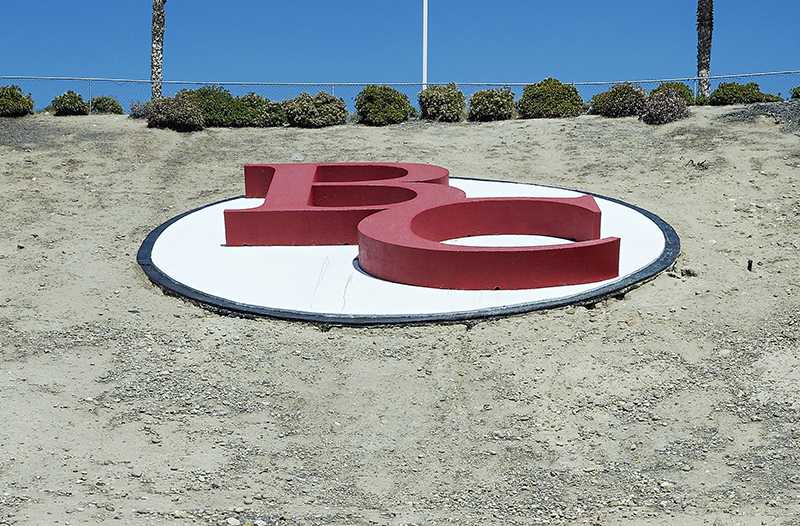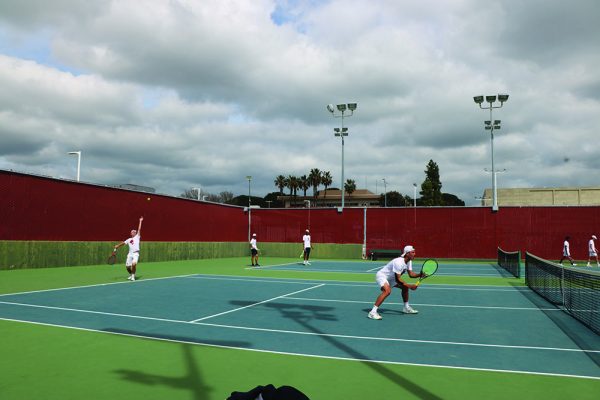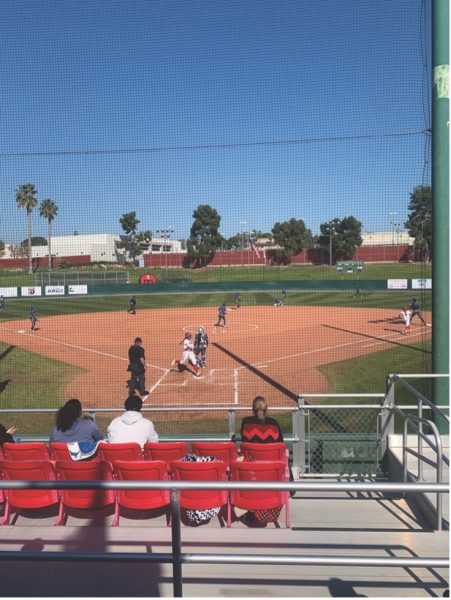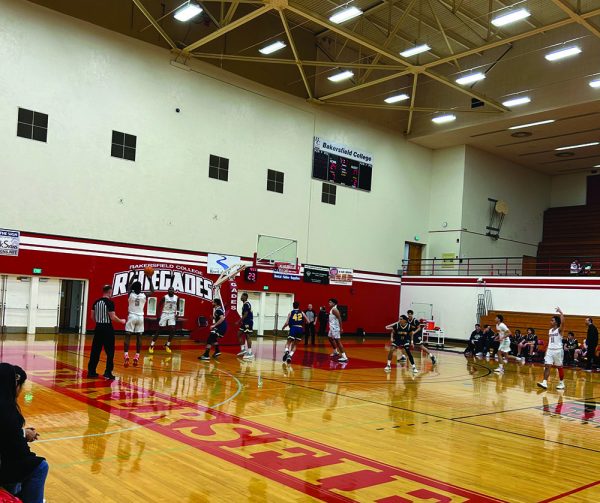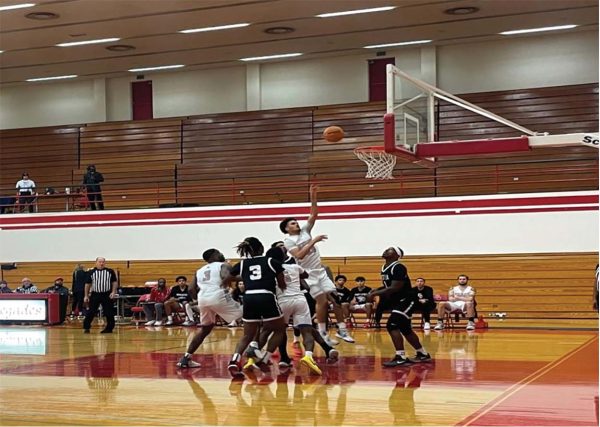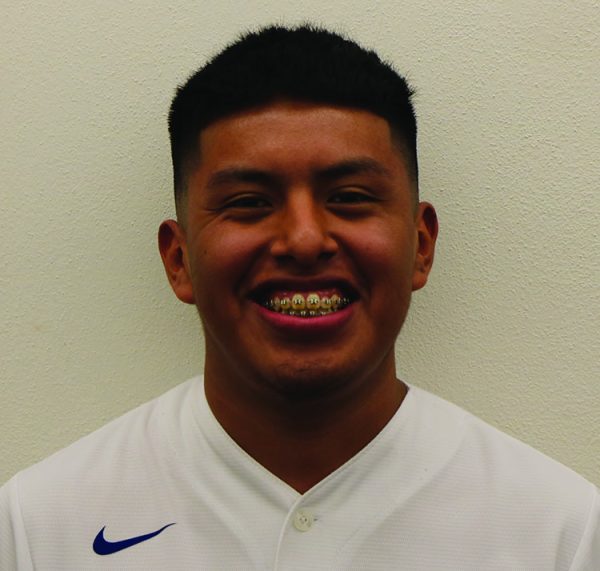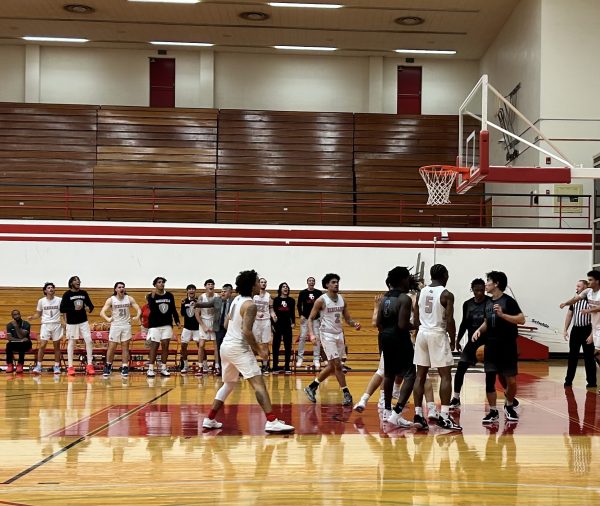Years later, 2012 state championship talks loom
Renegade Helmet Club president Ed Davis sits down with The Rip and talks past, present and future of the club.
May 3, 2016
Following the loss of the 2012 state championship, the Renegade Helmet Club has not done much in the way of media events. Earlier this month, current Helmet Club president Ed Davis discussed the history, present, and future of the club, and more importantly, the CCCAA bylaw violations and what the club has done to ensure future violations don’t occur.
The Renegade Helmet Club was established in 1987, originally as a group of former Renegade football players who wanted to give back to a school and football program that had done so much for them.
“We are trying to fill in the gaps where the financial needs are, by having an organization of us old farts who are just trying to help,” said Davis. “If it wasn’t for the Helmet Club, would these guys have new helmets? Would they have new shoes? ”
In reviewing public records, Bakersfield College is alleged to have violated six bylaws of the CCCAA, specifically, providing a pre-game dinner to football players, implying the availability of housing and student work, facilitating the payment of rent, and the housing of football players facilitated by staff.
The violations directly naming the Helmet Club included having a non-affiliated booster club without BC oversight and a weekly meal specifically for football players, subsidized by booster funding.
The football team would have Wednesday afternoon lunch meetings to go over the upcoming game plan, and the Helmet Club provided sandwiches for the players and coaches. “It was a thing they been doing for years. When I (played) here, we did the same thing,” said Davis.
“The fault of this whole thing, primarily, is the fault of the chancellor, Sandra Serrano,” said Davis. “At the end of the day for the coach or the Helmet Club to take any heat for the loss of this championship is absolutely outrageous, because in truth and in reality, the chancellor’s job … is to police the district, that is what a chancellor does, to make sure everybody is doing things the right way.”
“If the Helmet Club, and/or the coaching staff, and/or the school is doing something that is flying in the face of (CCCAA) rules, it’s her job to stop that, it is her J.O.B., it is what she is paid for,” continued Davis.
Davis continued, “(Serrano’s) position was, she really didn’t know what the Helmet Club was doing, nobody tells me anything, and that was her copout, rather than doing her job.”
Davis expressed frustration that it took the loss of a State Championship to have someone within the Kern Community College District come to the Helmet Club, and tell them what they could and could not do under the ever-changing CCCAA bylaws.
“Those of us who are in the Helmet Club, the last thing in earth we wanted to do was to hurt anyone at any level,” said Davis.
According to the CCCAA bylaws, compliance falls solely on the individual college, with the college president and athletic director being responsible for enforcement.
Neither the Helmet Club nor Bakersfield College had or currently have a compliance officer. Sources within the Athletic Department stated that the role of compliance officer falls on athletic director Sandi Taylor and associate athletic director Keith Ford, who also have to be the chief administrators for 19 athletic teams.
The other change that resulted from the loss of the State Championship is that now the Helmet Club has a working relationship with the Bakersfield College Foundation. The Helmet Club still holds true to its mission in raising funds to help support the needs of the football program, but now the coach has to set up the expenditure through the Foundation, giving BC oversight of those funds.
BC is still involved in the appeal of the CCCAA decision to strip the State Championship, with the matter now being handled by the courts. Davis had little knowledge of the appeal, and wanted to stress that the Helmet Club is not involved in any aspect of the appeal.
The Helmet Club was made the “bad guy,” so Davis viewed the separation from the appeal as a good thing, indicating that he and Helmet Club would happily “fall on the sword” if it got the championship back for the “kids” because that is what it comes down to, is the “kids.”
Speaking of the younger generation, Davis said the Helmet Club would love to have current BC students join, even if they did not play football at BC. The Helmet Club is open to all, with the only requirement being a $50 membership fee, which needs to be paid annually.
“We are a non-profit, there is only one paid employee, and I pay that employee out of my own company, so technically there are no paid employees of the Helmet Club,” said Davis.
The Helmet Club currently has 50-60 active members, but they are looking to double that this year, and again double that the following year.
There is a current revitalization of the Helmet Club’s Facebook page and website, with an active need for past team photos. Once fully up and running, the website will have an archive of photos and game films, and can be found at www.renegadehelmet.club
The Helmet Club’s major fundraiser is known as The Night of the Renegade and will occur on May 7. Special to this year’s dinner, is that game film from the 1953 Junior Rose Bowl game will be played throughout the evening.
There are a few tickets still available. They can be purchased through the Helmet Club’s website.
Update:
The original story published on May 4, 2016 failed to mention that CCCAA bylaws place compliance on the individual college, with the college president and athletic director being responsible for enforcement.


